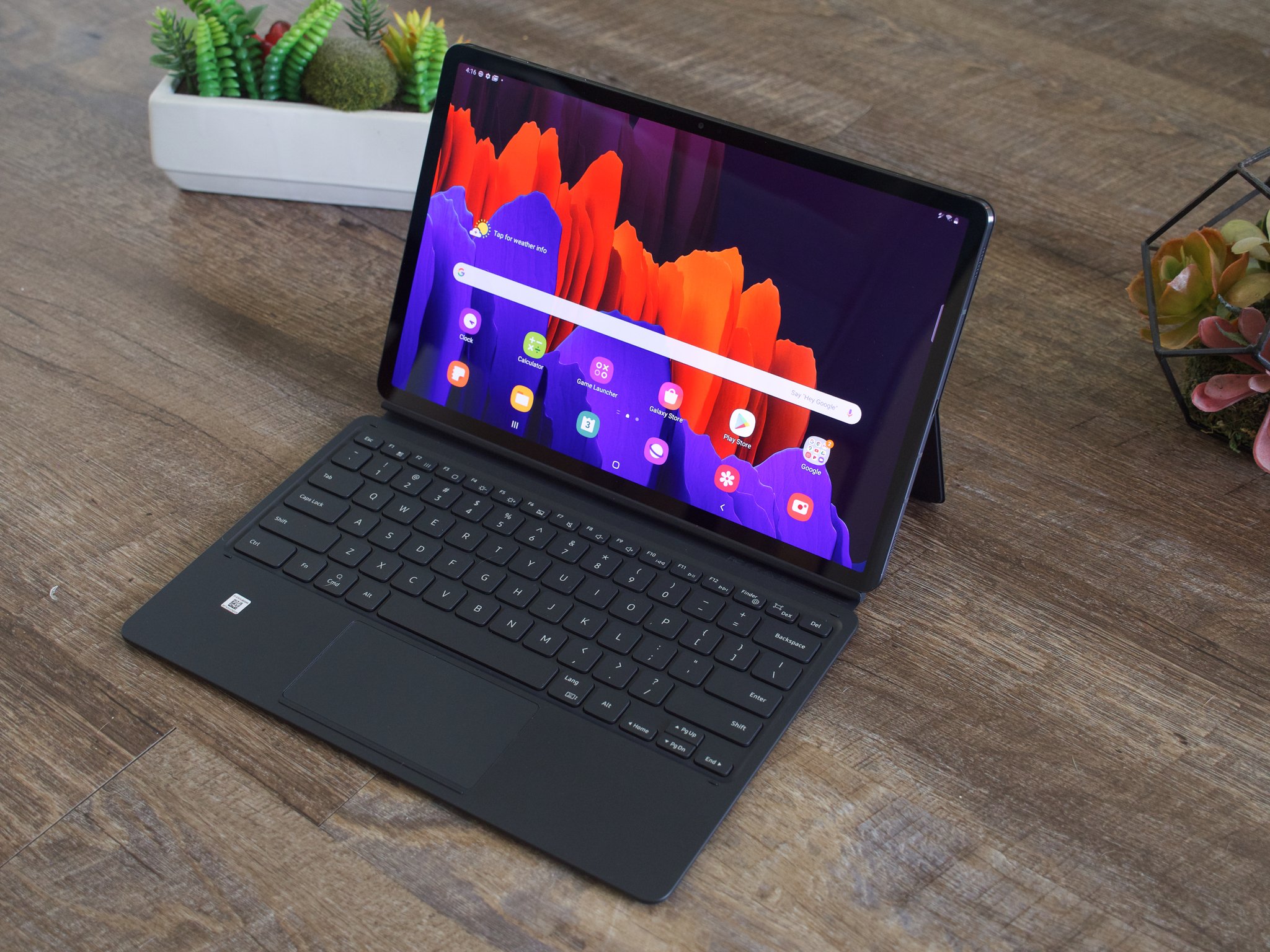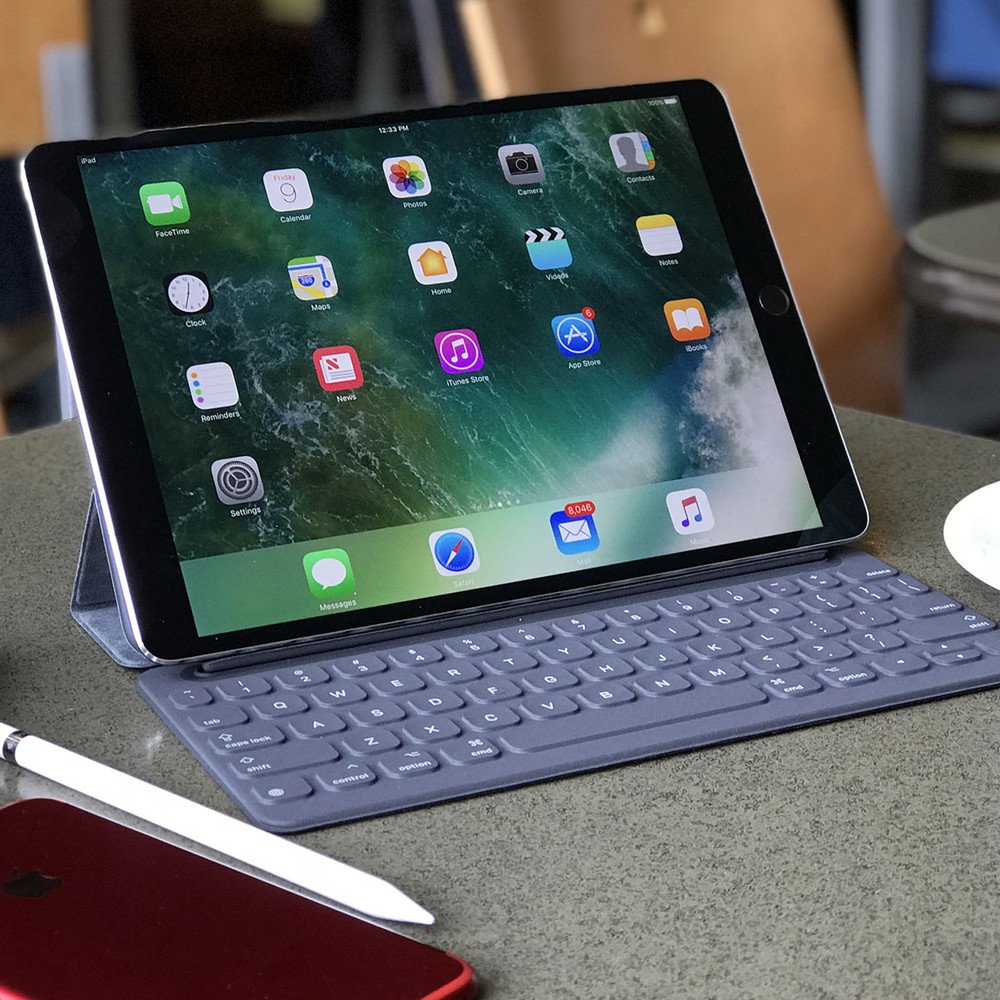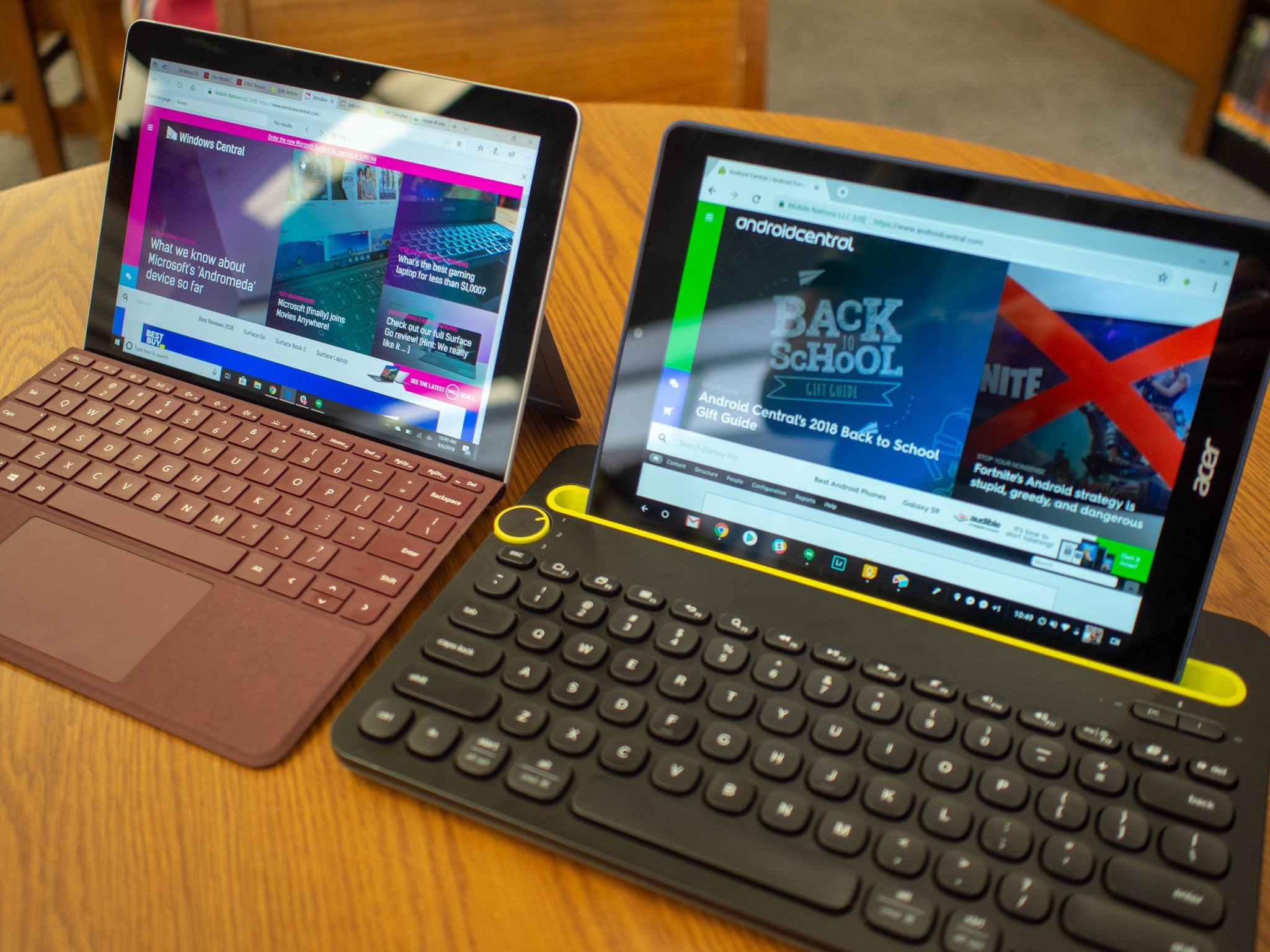With laptop-grade software and mobile-grade hardware, tablets seem to have evolved in the wrong direction.
There are a lot of people who really love to use a tablet. You might not be one of them — I'll admit I'm not really a tablet guy — or you may turn to your tablet first when it comes to work or play and always want to have one of the best Android tablets you can buy on hand. Tablets have traditionally had a pretty clear purpose; filling the void between using the small and less powerful phone and the bulkier and more powerful laptop. But today, those lines are blurred more than ever before.
Putting a laptop chip in a mobile device doesn't make things better by default.
All it takes is one look at Apple's Spring Loaded event, which featured the big changes to the iPad Pro to see this in action. While these issues affect every premium tablet to some extent, the new iPad Pro is a clear example of the hardware being hamstrung by the software capabilities — or lack thereof. With the same powerful M1 chip featured in the MacBook and now the iMac, but still chained to a mobile operating system, the iPad Pro exists in a market that doesn't make a lot of sense. The "regular" iPad does everything more than well enough for a lot less money, and the MacBook Air actually offers the same specs.
This doesn't just apply to the iPad, though the new Pro does shine a spotlight on the problem. Samsung makes two different flavors of a tablet, too. Premium models like the Galaxy Tab S7 Plus are filled with the latest powerful Qualcomm chip and oodles of storage and memory, while the much cheaper A series or the "Lite" versions have more modest specs and price tags. Ask someone who has used both, though, and they're likely to tell you that the cheaper model is just fine.
It's something that has been brewing for a while, especially on the Android side of things. Most everyone will agree that Apple's tablets are more capable than an Android equivalent simply because there are more apps tailored to take advantage of what a tablet can offer when it comes to screen real-estate. Samsung is at the mercy of Google here.
Google doesn't seem to care about tablets as much as Samsung does and that's a problem.
An app doesn't have to offer more features on a tablet — though that's always a bonus — but it does need to utilize the form factor. Apple makes sure apps do this and developers that want their apps to be installed on an iPad follow the rules. This is an area where Android tablets have always lagged behind, and there is only one place to lay the blame: Google's lack of attention to the tablet form factor. And that's not getting any better anytime soon, even with Android 12 on the horizon.
But once you put hardware that's capable of more than running the web browser, using Google Docs, or even playing a mobile game inside of a tablet you've reached the point of zero return. Even though your Galaxy Tab S and your phone may share the same chip, bigger batteries and better thermal management make the identical hardware much more capable, and we see that in products like Microsoft's Surface line, Apple's MacBook Air, and Chromebooks.
The whole situation is a vicious circle of companies competing against each other and being forced to follow the path they created by telling consumers that we need the best hardware. Straight up — you don't need a laptop-grade SoC inside your tablet unless it can run laptop-grade software and has a laptop-grade operating system. Great displays and plenty of memory are worthy additions, but when paired with a very expensive chip it does little more than drive up prices.
This circle where Apple and Samsung keep making high-end hardware without the software to power it will continue.
It will continue. Apple decided that in order to earn its Pro nameplate, the new iPad Pro had to have the same chip you find inside a new MacBook. Samsung has to put the best chip Qualcomm has to offer that works with Android inside its Tab S Plus line for the same reason — to justify the price.
This may work out for Apple and Samsung, as neither company would be offering a product that loses money. But it's not great for us as consumers because the value isn't there. Yes, the new iPad Pro will run 1Password or Slack or mobile games XX% faster than the previous model, and the next Galaxy Tab S Plus will boast the same, but did we really need or will we even notice the performance gains? I doubt it.
There is no easy way to fix this. Maybe Apple will marry iOS and macOS one day and that would make the iPad Pro more worthy of its price. Samsung could work with Microsoft and put Windows 10 on the Tab S Plus to achieve the same results. What-ifs aside, maybe you should think twice before you drop the big money on one of these premium, overpriced, and over-specced tablets.




Post a Comment